-
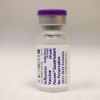 +18 +1
+18 +1COVID may have pushed a leading seasonal flu strain to extinction
The pandemic coronavirus' debut wrought universal havoc—not even seasonal flu viruses were spared. Amid travel restrictions, quarantines, closures, physical distancing, masking, enhanced hand washing, and disinfection, the 2020-2021 flu season was all but canceled. That meant not just an unprecedented global decrease in the number of people sick with the flu but also a dramatic collapse in the genetic diversity of circulating flu strains.
-
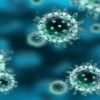 +18 +1
+18 +1Russian bats with COVID-like virus found; resistant to vaccines: Study
A new SARS-CoV-2-like virus discovered in Russian bats is capable of infecting humans, and is resistant to current vaccines against COVID-19, a study has found. A team led by researchers at Washington State University (WSU), US, found spike proteins from the bat virus, named Khosta-2, can infect human cells and is resistant to both the antibody therapies and blood serum from people vaccinated for SARS-CoV-2.
-
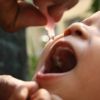 +17 +1
+17 +1Poliovirus is spreading in New York. Here’s what you need to know
With signs of poliovirus spreading in a handful of counties in New York, unvaccinated people could be at risk of paralytic polio.
-
 +27 +1
+27 +1Chinese scientists develop mask that detects COVID in the air
A sensor built into a mask was able to detect the COVID-19, H5N1 and H1N1 influenza viruses in the air within 10 minutes and send notifications to a device, according to the study led by six scientists working with Tongji University in Shanghai.
-
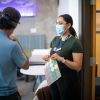 +16 +1
+16 +1UBC researchers say they've found 'weak spot' in all COVID-19 variants that could lead to better treatment | CBC News
Researchers at the University of British Columbia have discovered what they describe as a "weak spot" in all major variants of the virus that causes COVID-19 — a revelation they believe could open the door for treatments to fight current and future mutations.
-
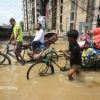 +4 +1
+4 +1Climate change is making hundreds of diseases much worse
Climate change has exacerbated more than 200 infectious diseases and dozens of non-transmissible conditions, such as poisonous-snake bites, according to an analysis1. Climate hazards bring people and disease-causing organisms closer together, leading to a rise in cases. Global warming can also make some conditions more severe and affect how well people fight off infections.
-
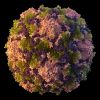 +17 +1
+17 +1Polio detected in NYC's sewage, suggesting virus circulating
NEW YORK (AP) — The polio virus has been found in New York City’s wastewater in another sign that the disease, which hadn’t been seen in the U.S. in a decade, is quietly spreading among unvaccinated people, health officials said Friday.
-
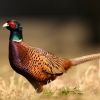 +15 +1
+15 +1Calls to ban gamebird release to avoid ‘catastrophic’ avian flu outbreak
Conservationists have called for ministers to ban the release of millions of gamebirds to prevent the UK’s wild birds being wiped out by a “catastrophic” avian flu epidemic this winter. The Royal Society for the Protection of Birds (RSPB) said there was a significant risk that pheasants, partridge and ducks released for shooting from 1 October could spread avian influenza into wild bird populations, wreaking havoc in farmland and garden birds.
-
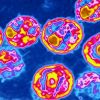 +4 +1
+4 +1A 5th person is likely cured of HIV, and another is in long-term remission
One case involved a man with cancer who underwent a specialized stem cell transplant; the other involved a woman who received immune-boosting therapies as part of a clinical trial.
-
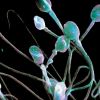 +16 +1
+16 +1What we know so far about how covid-19 affects sperm
Covid-19 infections can lower sperm count and the virus may even bind to receptors on the surface of sperm cells. However, there is no evidence to suggest that the effects differ to those seen after other illnesses that involve fever, such as the flu.
-
 +16 +1
+16 +1New face mask that can kill Covid virus developed
Researchers have developed a new N95 face mask that can not only reduce COVID-19 spread but also kill the SARS-CoV-2 virus upon contact with it.
-
 +16 +1
+16 +1TWiV 915: Mouse mouth to mouse mom
-
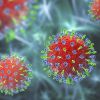 +15 +1
+15 +1Good news on blocking a virus considered a global threat
Scientists have reported good news on the pandemic preparedness front: A cocktail of four manufactured antibodies is effective at neutralizing a virus from the Henipavirus family, a group of pathogens considered to be a global biosecurity threat.
-
 +8 +1
+8 +1'Ebola is defeated,' says Congolese professor who discovered the virus
"For 40 years I have been a witness and a player in the fight against this terrifying and deadly disease and I can say today: it is defeated, it is preventable and curable."
-
 +17 +1
+17 +1Viruses that were on hiatus during Covid are back — and behaving in unexpected ways
For nearly two years, as the Covid pandemic disrupted life around the globe, other infectious diseases were in retreat. Now the viral and bacterial nuisances are returning — and behaving in unexpected ways.
-
 +22 +1
+22 +1UK Covid patient was positive for record 505 days: researchers
British researchers believe they have documented the longest-known Covid-19 infection, in a patient who tested positive for a total of 505 days before their death. The previous record for persistent infection -- rather than repeated bouts of Covid -- is thought to be 335 days, the team from King's College London and Guy's and St Thomas' NHS Foundation Trust said.
-
 +28 +1
+28 +1Virologists Identify More Than 5,000 New Viruses in the Ocean
Virologists have identified 5,504 new virus species floating in ocean water samples. The viruses were found using a machine learning algorithm to study 35,000 water samples from all over the globe, reports Vishwam Sankaran for the Independent.
-
 +19 +1
+19 +1Pfizer, Moderna vaccines aren’t the same; study finds antibody differences
The findings add further weight to the idea of mix-and-match boosting.
-
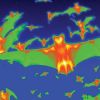 +16 +1
+16 +1The controversial quest to make a 'contagious' vaccine
A new technology aims to stop wildlife from spreading Ebola, rabies, and other viruses. It could prevent the next pandemic by stopping pathogens from jumping from animals to people.
-
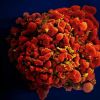 +9 +1
+9 +1NIH launches clinical trial of three mRNA HIV vaccines
Phase 1 study is among first to examine mRNA technology for HIV.
Submit a link
Start a discussion




















